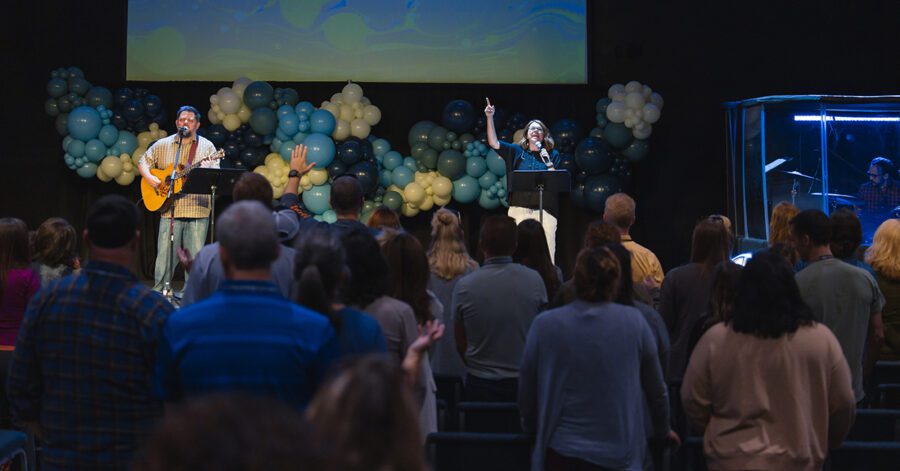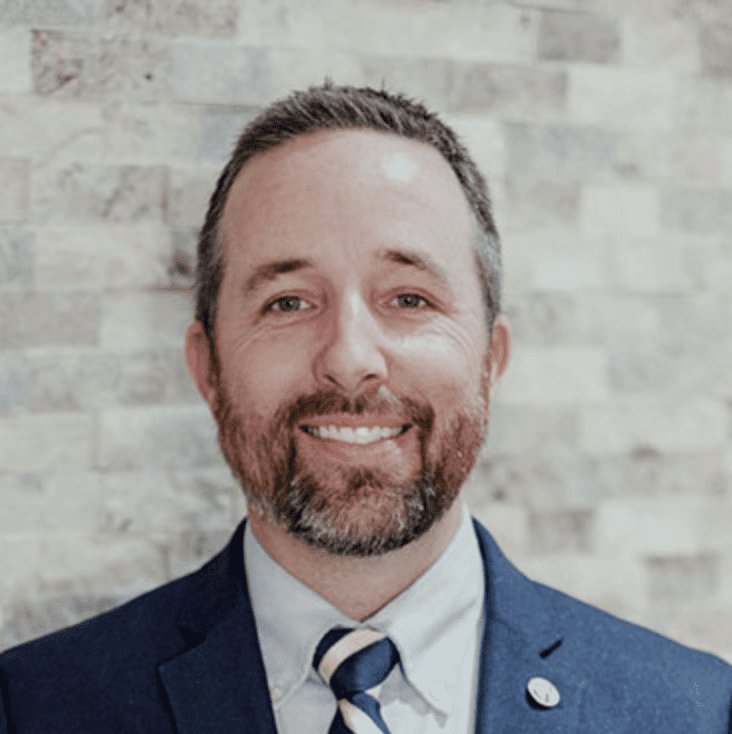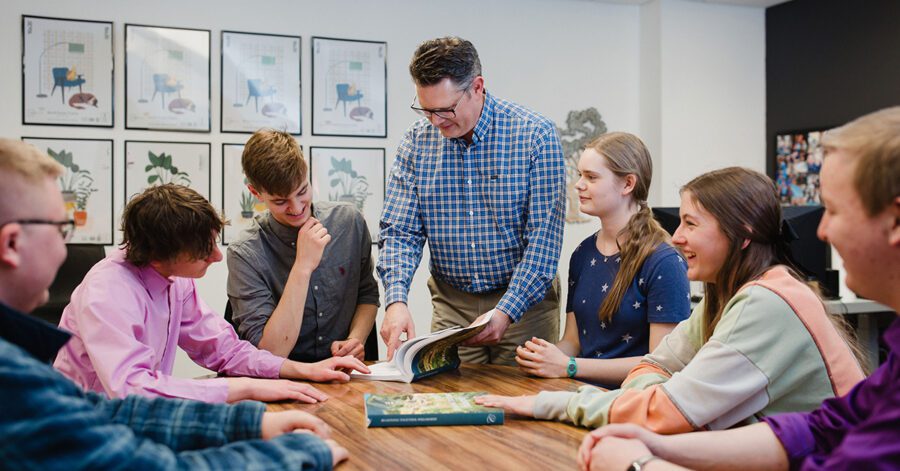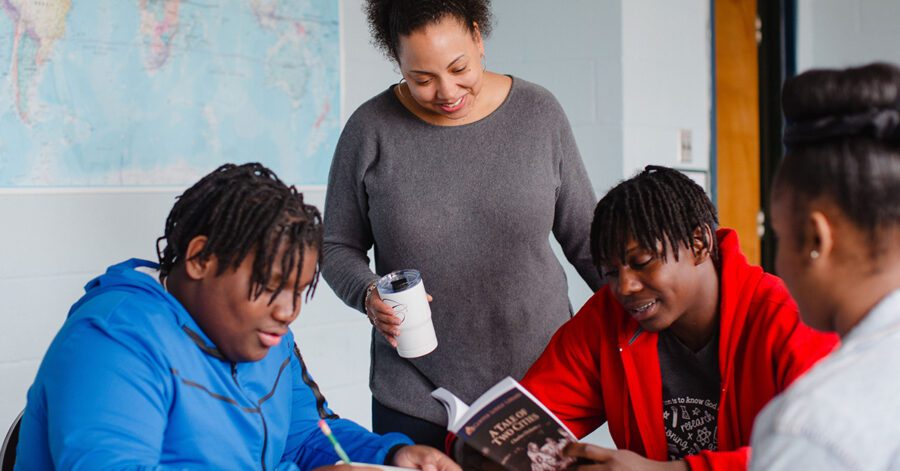In this blog post, Dr. Josh Buice, pastor of Pray’s Mill Baptist Church in Douglasville, Georgia, shares why his church partners with Classical Conversations.
Why Our Church Partners with Classical Conversations
In our current era, one of the most disheartening trends is the increasing secularization and degradation of public education. This is apparent on many levels, from public school systems to state universities and private colleges. You know we have problems when Harvard casts doubt on whether or not 2+2 must always equal 4.
Many years ago, I vividly remember discussing our concerns with my wife as our daughter was about to enter the public school system. After visiting the school campus, we realized that we couldn’t entrust our children to educators who weren’t committed to educating our children through a biblical worldview or a classical educational model.
At that pivotal moment, we decided to embrace home education despite having only a few weeks to prepare. It felt like being cast into a vast, unfamiliar ocean without any prior seafaring experience. Those initial two years presented both blessings and challenges for our family. While God confirmed that we had made the right decision, we also had to navigate through various obstacles.
During those early years, a representative from Classical Conversations approached me at our local church office about hosting a community group on our campus. After discussions among pastors, we agreed it would be a valuable service to our local families.
Having spent a couple of years on the home education journey in isolation, my wife and I decided to explore Classical Conversations—especially since they were already meeting on our church campus. After my wife’s first meeting with one of the directors, we knew it was the perfect fit for our family.
This past year, our oldest daughter graduated. It was a wonderful journey and one that we continue to this very day as our other children are following the same pathway. Although I’m the proud father of Classical Conversations students, I’m also a supportive pastor as well.
Our Church Is Committed to Homeschooling
Our pastors support the philosophy of home education, so our partnership with Classical Conversations is a natural fit. We have a great number of families within our church who are committed home educators and use various methodologies.
However, that was not always the case. I’ve been serving as the senior pastor of Pray’s Mill Baptist Church in Douglasville, Georgia, since 2010. When I first arrived, there was not a single family in the church committed to home education. Today, about 90% of our families are engaged in home education, with many families participating in Classical Conversations.
As a pastor, witnessing families from our local church gather on campus each week with their children is a truly encouraging sight. It reminds me of the time when we discovered Classical Conversations when our daughter was young, and we desperately needed a support system. These families coming together on campus are like a built-in support network for one another.
We also view the use of our facility as a good service to our local community. While the church is not a community center, it’s good when the local church in a community can benefit the community in some way. The Classical Conversations group that meets on our campus is quite large and has families from our community and neighboring communities on the west side of Atlanta. If our church campus can help these families thrive as they engage in the work of education each week—it’s certainly our joy.

We Support the Goal of Raising Faithful Young Men and Women
The Bible instructs us to raise our children in the nurture and admonition of the Lord.
In fact, Paul advises Timothy to convey to the church at Ephesus that fathers should not provoke their children to anger but rather “bring them up in the discipline and instruction of the Lord.” In Deuteronomy 6, the children of Israel received a clear command to faithfully instruct their children.
It’s crucial to recognize that the government’s goals differ significantly from those of Christian homes. Years ago, Voddie Baucham, in his book Family-Driven Faith, wrote the following, “70–88% of teens, who profess Christianity, walk away from their faith by the end of their freshman year of college.”
We must remember that if we refuse to disciple our children, the government and secular universities will gladly rise to the challenge. However, their goal is far different than the goal of the Christian home, and the results will be catastrophic.
According to the state of New York, they view their responsibility as raising children who will become agents of change. Take, for example, the CR-S (Culturally Responsive-Sustaining Education Framework) as explained on the New York State Department of Education website:
The CR-S framework helps educators create student-centered learning environments that: affirm racial, linguistic and cultural identities; prepare students for rigor and independent learning, develop students’ abilities to connect across lines of difference; elevate historically marginalized voices; and empower students as agents of social change.
The website goes on to explain:
A complex system of biases and structural inequities is at play, deeply rooted in our country’s history, culture, and institutions. This system of inequity — which routinely confers advantage and disadvantage based on linguistic background, gender, skin color, and other characteristics — must be clearly understood, directly challenged, and fundamentally transformed. The New York State Education Department (NYSED) has come to understand that the results we seek for all our children can never be fully achieved without incorporating an equity and inclusion lens in every facet of our work.
The state of New York has a clear goal of educating students as agents of social change (The United Nations Educational, Scientific and Cultural Organization calls this “transformative education”), and this is already evident in political policies, public opinion, and a growing dependence on the government for major life decisions, including marriage, family, education, healthcare, and religion. It’s not just the English department that requires close scrutiny; this influence extends throughout the entire system.
It’s also not a problem for New York alone. Those same problems exist in many other states, including the state of Georgia. It may be in a more subtle form, but it’s nevertheless present.
Homeschoolers Need the Support of Faithful Churches
Clearly, faithful parents must embrace their responsibility to raise their children to stand firm in this challenging era and refuse to compromise. These families require the support of faithful churches. As the Lord raises up families dedicated to Christian education and discipleship, my prayer is that more local churches will partner with Classical Conversations in their communities to support these families.





